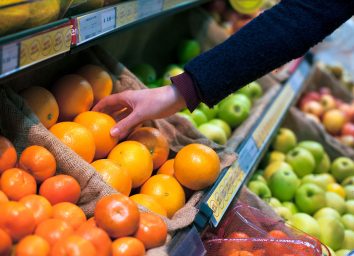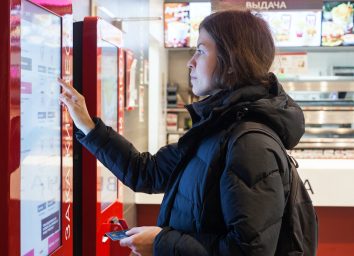5 Things You Should Never Bring into a Grocery Store
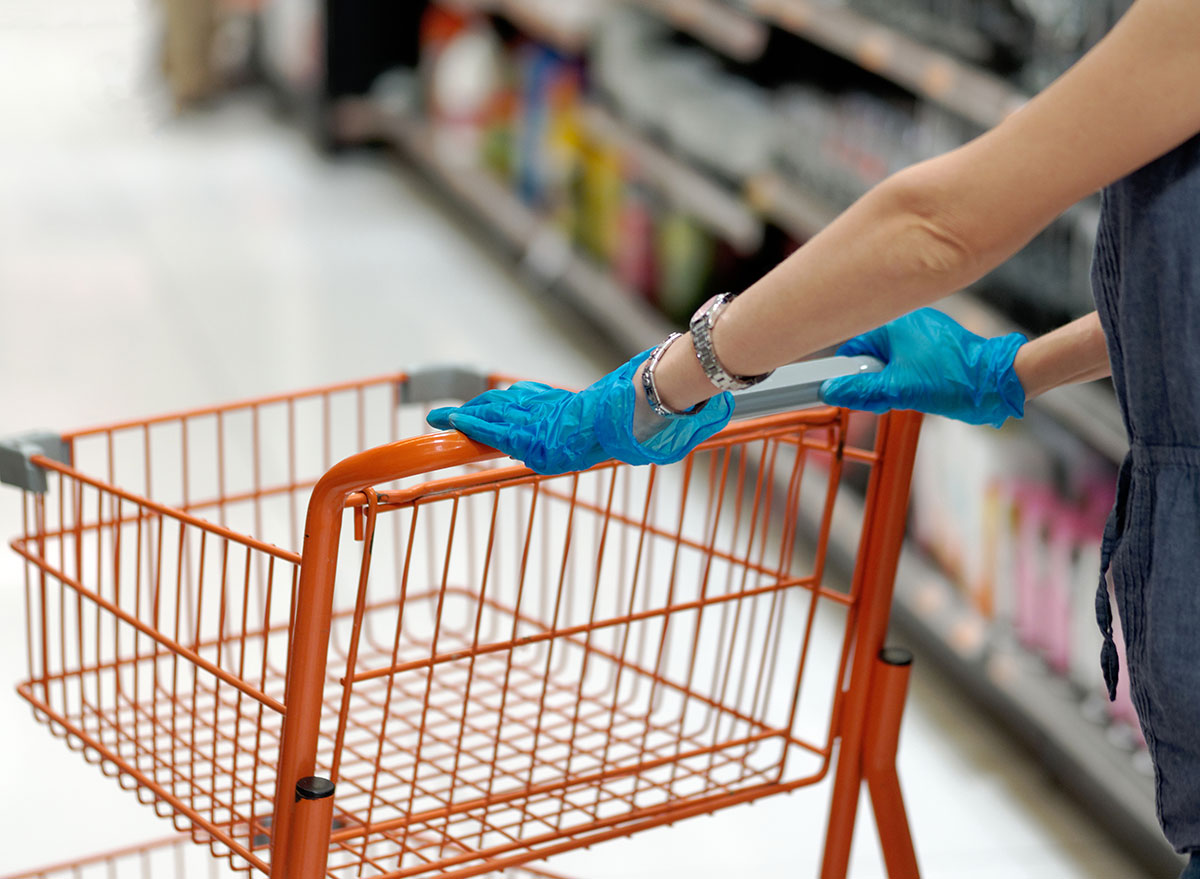
During a global pandemic, grocery shopping has become a high-pressure activity, requiring that we all pay careful attention to what we're doing, what we're touching, and who we're standing near. With so much on our minds beyond just getting the food we need to buy, it's wise to try to reduce distractions and potential germ-magnets as much as possible when going shopping.
A good place to start in this effort is to review the items you're choosing to bring with you into the store, and actively leaving a few of them behind. Whether that means leaving a few items in the car or at home, when it comes to grocery shopping in 2020, it's wisest to pack light.
Here are five things you can do without—at least for the time being. (And for more grocery shopping tips, make sure to sign up for our newsletter.)
Smartphone
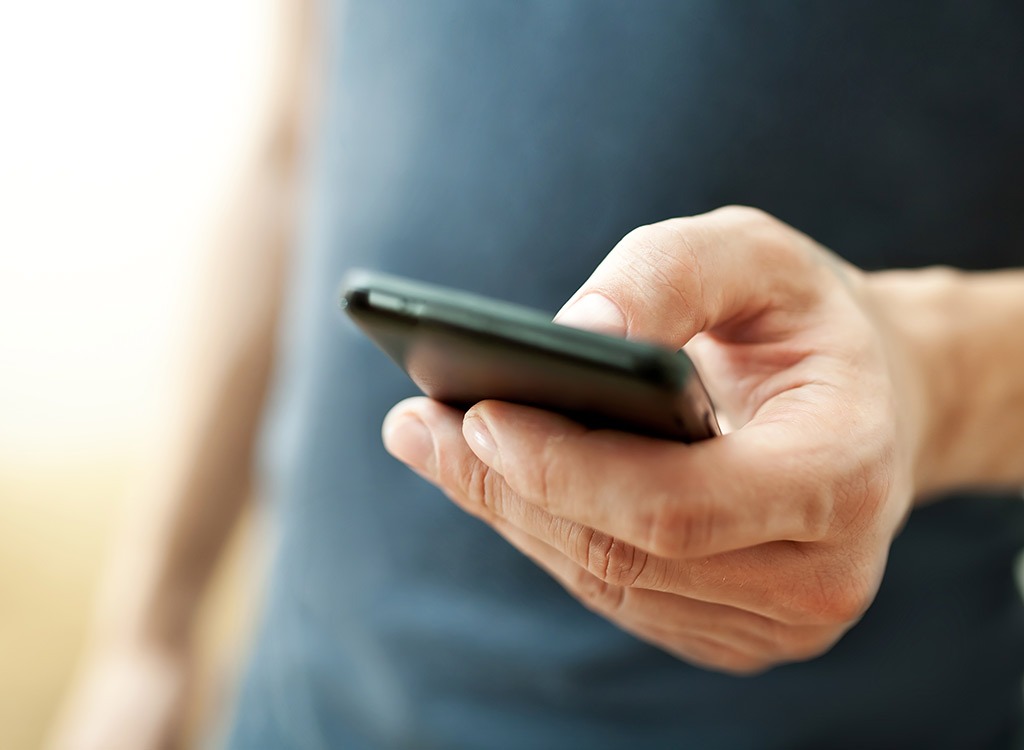
Most of us can't imagine leaving home without a smartphone, and popping yours into a pocket as you head into the grocery store is not a problem. But what is an issue is if you start pulling it out as you walk the aisle, checking a text you received, answering an email, or looking up a recipe you wanted to make for dinner. These habits can all lead us to potentially spread bacteria.
"We unconsciously touch our smartphones while shopping to text, take a call, or check grocery lists," says Dr. Lina Velikova, MD, PhD, a medical advisor for Supplements101. "Touching products at the store and then your smartphone several times increases the chances of it becoming a breeding ground for bacteria and viruses."
Potentially worse than the risks of spreading the virus via surfaces is the distractions your smartphone creates, causing you to lose focus on the task at hand—moving quickly and efficiently through the aisles and keeping your distance from other shoppers. Looking at your phone can cause you to neglect social distancing or even bump into other shoppers, and at best leads you to stay indoors in a busy public space longer than is absolutely necessary.
According to Velikova, "My suggestion is to keep your phone tucked away and don't reach for it until you've left the store and disinfected your hands." (Related: 3 Things You Shouldn't Do at the Grocery Store.)
Reusable Bags
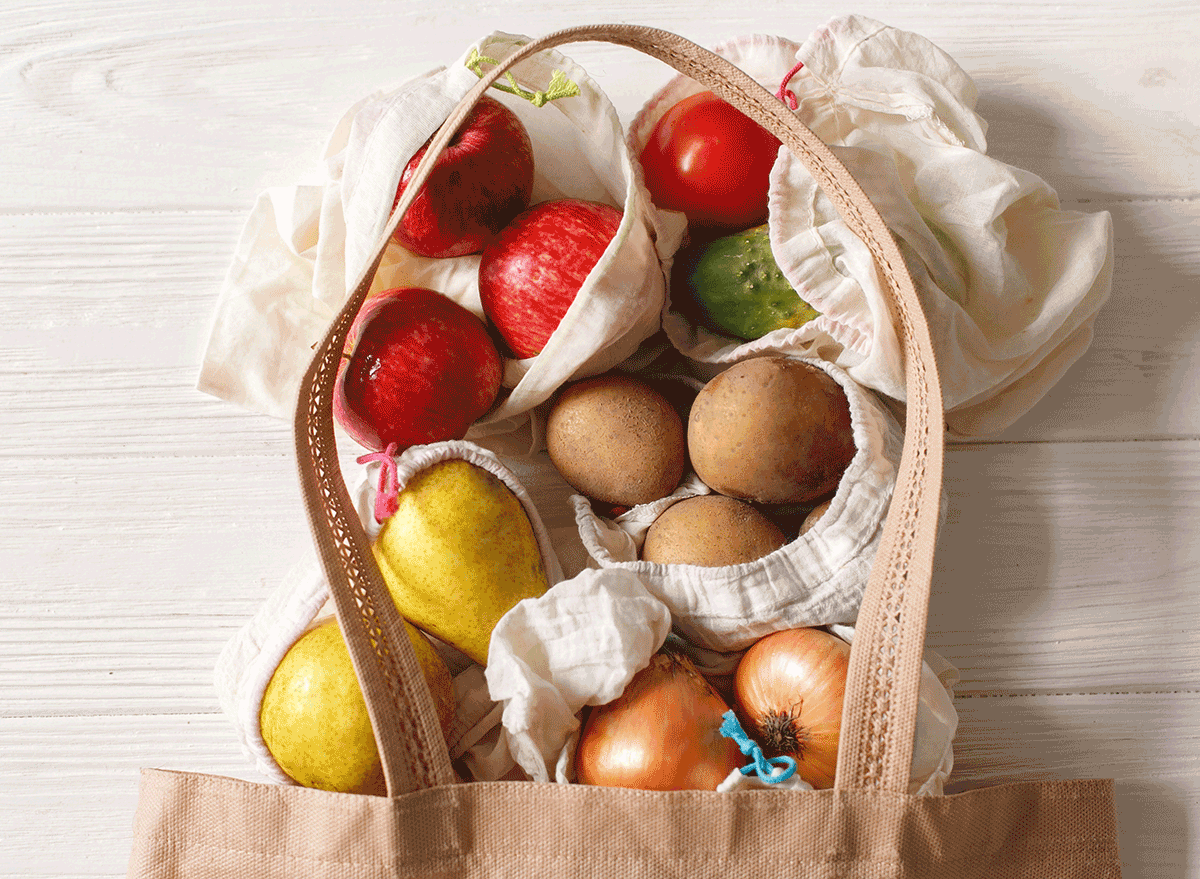
In normal times, bringing a canvas tote or bulky purse into the store in which to toss your groceries was widely considered an environmentally responsible move. But research, including a 2018 study published in the Journal of Environmental Health, has found that these kinds of sacks can carry traces of viruses after being used in a grocery store. So now, it might be wiser to just stick with the disposable bags the store provides.
"Although they are good for the environment, some stores do not allow you to bring reusable bags in order to decrease the risk of contamination," says Dr. Monique May, a board-certified family physician and founder of Physician in the Kitchen.
Even if you aren't using your bag to hold groceries, you'll want to avoid carrying around anything that takes up room and could impede your ability to get in and out of the store while touching as little as possible.
"Some stores will not permit these, as they may go from store to store without cleaning in between," says Dr. Susan Donelan, medical director of healthcare epidemiology at Stony Brook Medicine. "However, leaving them in the car, bringing the groceries to the car and loading groceries into the bags to ease carriage into the home can minimize cross-contamination. It's important to clean the bags as soon as they are emptied of its contents." (Related: The Single Worst Side Effect of New Coronavirus Guidelines.)
Gloves
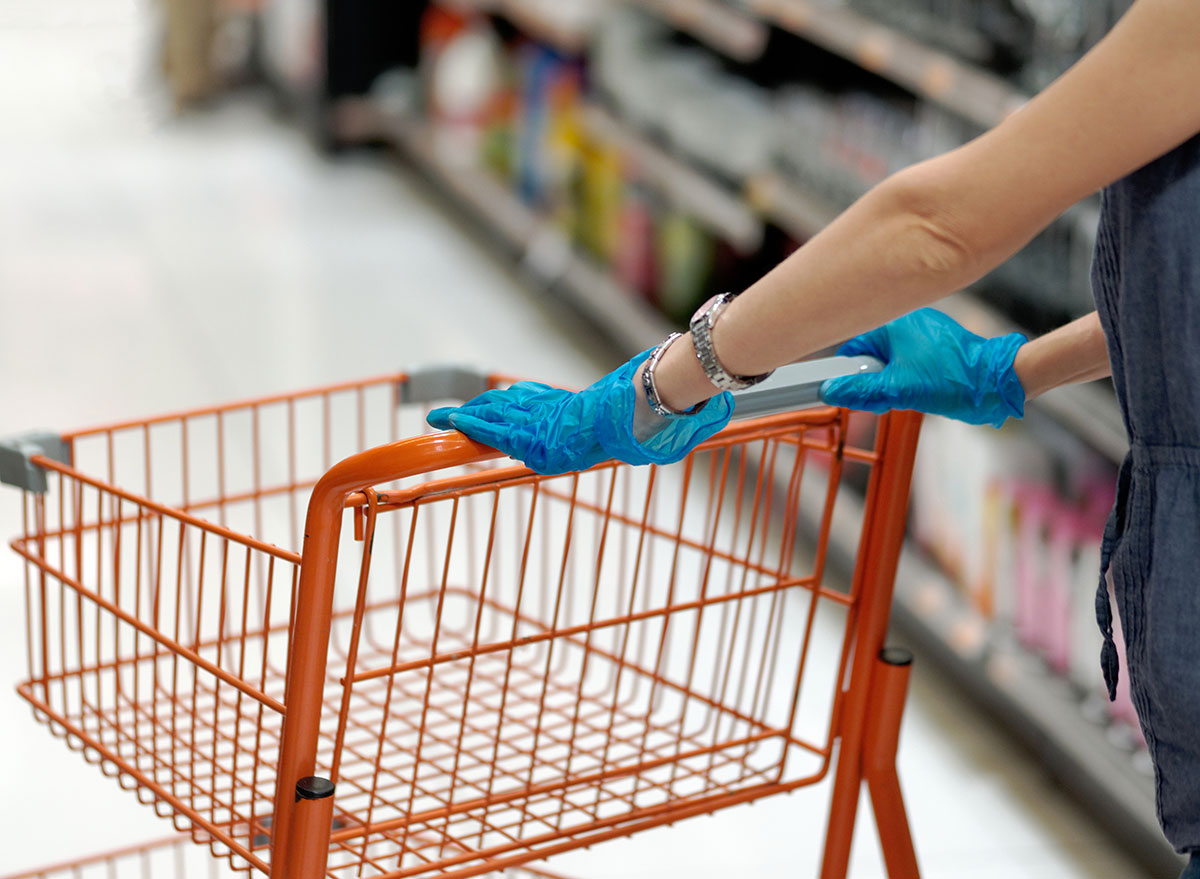
This might seem counterintuitive—after all, gloves prevent the spread of bacteria, right? Not necessarily. While those especially concerned about the virus may not only wear masks, but also gloves, medical professionals actually advise against the practice. This is not necessarily due to the gloves themselves, but the behaviors associated with wearing them.
"Gloves are not really needed when you are buying groceries," says Dr. Rashmi Byakodi, editor of Best of Nutrition. "Gloves act like your second skin, and you may feel safe to touch anything in the grocery shop. When you are touching various items with gloves you may spread the infection to whatever thing you touch next; this may also include your face, phone, purse, or another item at the grocery store."
May echoes these concerns that gloves can actually make the wearer more likely to spread germs.
"People may get a false sense of security when wearing gloves, but they forget that the gloves are contaminated once they touch a surface," she says. "They still need to wash their hands after wearing them."
Kids
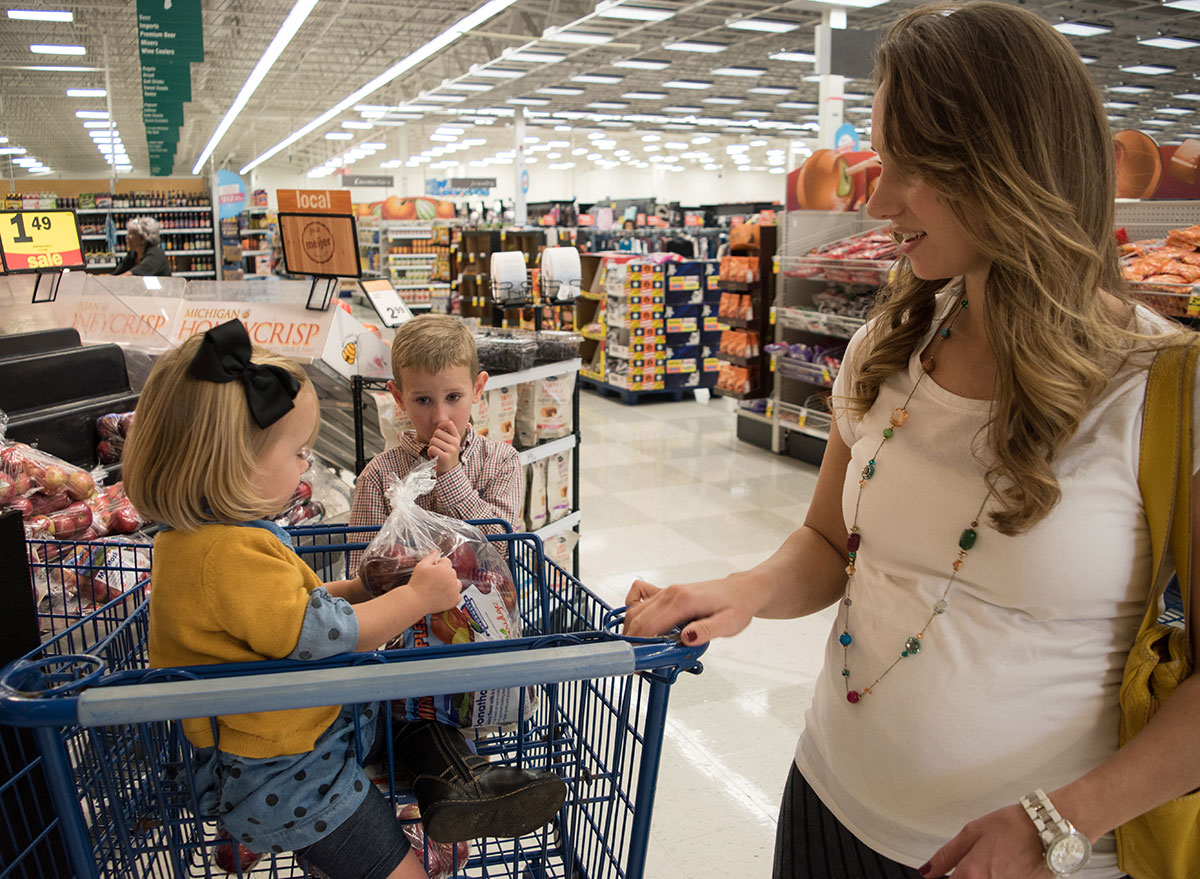
Speaking of distractions, even the best-behaved kids introduce a high level of unpredictability and a potential spreading risk for you and other shoppers.
"Children are naturally curious and have trouble keeping their hands off things, like shelves, food, and other shoppers," says Dr. Omerine Aseh, chief medical director of Concierge Medicine PLLC. "Kids do not always remember to socially distance and may not keep their masks on at all times. I have seen kids running their hands along the shelves as the store employees attempt to wipe them down. They are just being kids, but this could be catastrophic to them and all of us."
Donelan echoes this, emphasizing that kids who are too young to wear a mask should not be brought into the store. "If they are old enough to sit in the parent-facing seat, they are old enough to touch inanimate objects around them and then touch their faces [eyes, nose, mouth] potentially introducing virus into/onto themselves."
If a babysitter isn't feasible, she recommends utilizing home delivery services or curbside pick-up as options for your groceries. (Related: Target is Finally Making This Crucial Grocery Shopping Feature.)
Cash
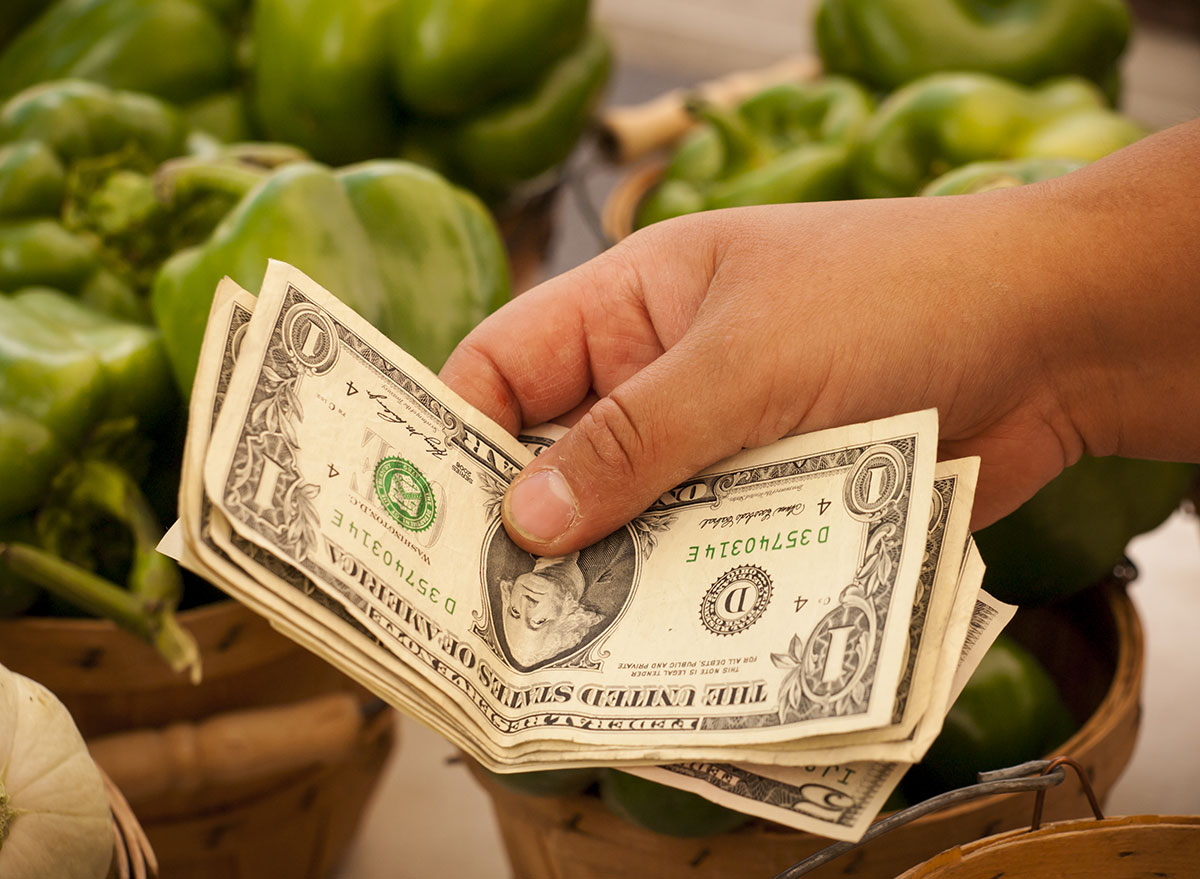
Even before we entered a pandemic, handling cash was a health hazard. A 2002 study by U.S. Air force researchers found that 94% of tested bills carried bacteria, some of which could cause pneumonia or other serious infection.
"Money serves as a fomite, an inanimate vehicle by which pathogens can be spread," Charles Bailey, MD, medical director for infection prevention at Providence St. Joseph Health, told Insider.
Credit cards are far easier to disinfect than paper bills and increasingly allow for contactless payment, helping you avoid one more interaction and opportunity to spread germs. But whatever form of payment you use, you should follow the same rule of thumb that was true before we'd ever heard of COVID-19: Wash your hands after you pay. For more, check out these 7 Genius Grocery Shopping Tips to Make You a Safer Shopper.
